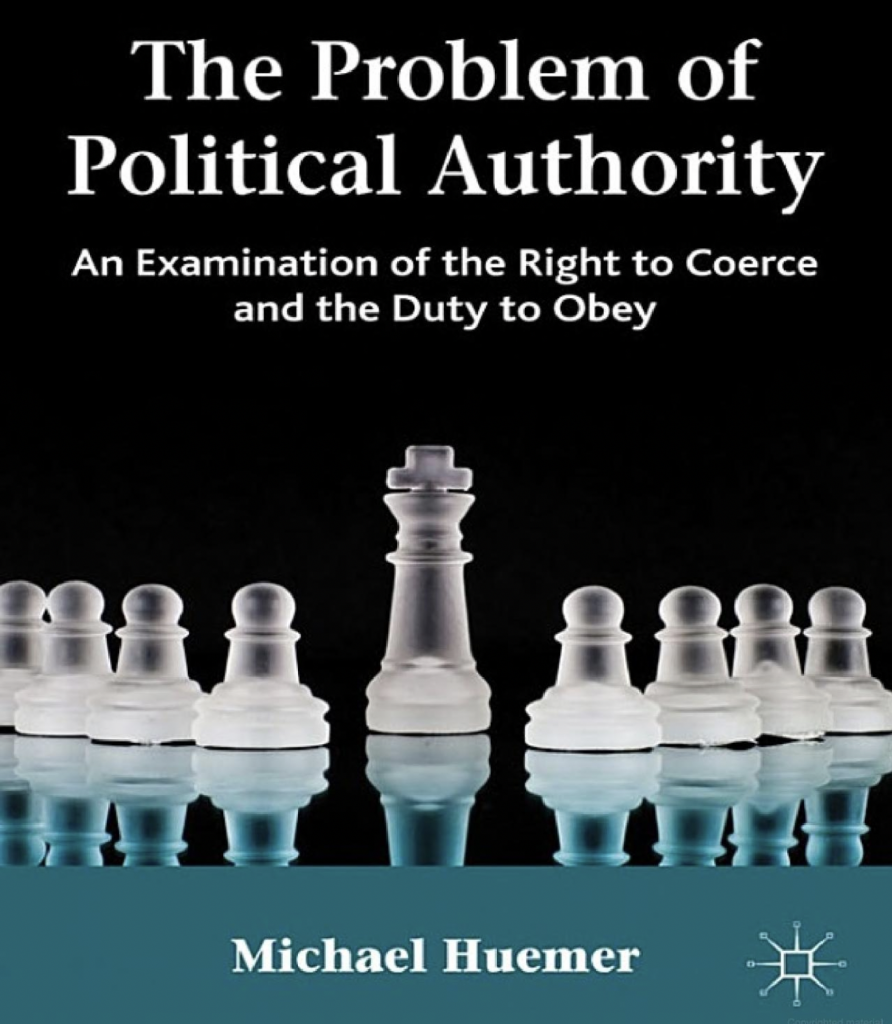Ep. 320 Philosopher Michael Huemer on the Problem of Political Authority

With a PhD from Rutgers, University of Colorado Professor Michael Huemer joins Bob to discuss his approach to anarcho-capitalism laid out in his book, The Problem of Political Authority.
Mentioned in the Episode and Other Links of Interest:
- The YouTube version of this interview.
- Michael Huemer’s website and his blog.
- Huemer’s Amazon author page.
- The link to Monetary Metals.
- Help support the Bob Murphy Show.

Fantastic episode. The primary thing that strikes me is this: Huemer might have shied away from using the term “natural law”, but his argument is a natural law one. This is because I believe this approach is the “common sense one.” Or what David Gordon more headily refers to as intuitionism.
But I like what the great Peter Kreeft says — he calls St. Thomas Aquinas the”apostle of common sense.” Aquinas, of course, is the father of the natural law tradition (drawing on older traditions, as always). The more I listened to Huemer, the more I heard arguments that come right out of the Scholastic tradition. To take one example, his comment about the limits of private property and justifying certain instances of aggression fully paralleled the School of Salamanca in the 16th century (see the wonderful Alejandro Chaufen on this: https://archive.org/details/christiansforfre00chaf).
At a broader level, I believe Huemer’s position is a natural entailment from St. Thomas’ paradigm on the ‘Law’ and resultant political order. See here, as some of the similarities are uncanny (https://isidore.co/aquinas/TenCommandments.htm#9). Even Huemer’s position on how people know what’s right but act selfishly otherwise is a modern way of defining the Law of Concupiscence.
Huemer in large part is using common sense and the law of non-contradiction. Aquinas spoke directly to this point in defining the “Law” that God expects man to follow, and in defining those “laws” that are unjust and have no authority. Again, see the above excerpt and the parallels are striking. This may sound a bit silly, but if I were asked (and no one would so ask)–but if I were!–to sketch my argument for a private property order, my outline would be almost word-for-word the same as the first 30 minutes of this episode, to an uncanny level. And I’ve never heard of Huemer before this!
Perhaps my strongest argument for this is a logical fallacy (appeal to authority), but it works because my authority is David Gordon, so that’s an allowable exception. Gordon doesn’t state (that I am aware of) his grand system anywhere, but I think I’ve divined other the years that he’s an intuitionist himself and thus agrees with natural law frameworks at least implicitly. Gordon’s review of Henry Veatch’s “Human Rights” book definitely points in that direction. So I’ve got that going for me.
Thanks Bob for introducing Huemer to your listeners!
Thanks for the episode, Bob. I’ve heard of the guest, but wasn’t familiar with his work. I have a much better sense of Huemer now.
I want to take a stab at describing the problem more precisely. All government, good or bad, is simply a group of people that describe commonly held non-calculable value assessments for other people to share. Nice governments compete by being better, while politics is about deprecating or eliminating the competition.
It seems strange that most people prefer the evil government until we take into account a couple of facts. Firstly, *some* government is necessary for any shared progress in humanity beyond Dunbar’s number. We cannot all be government not just because that defies the definition of it but for practical reasons specialization is necessary. A minority determining the values for the majority is how we determine who to trust or shun, what side of the road to use, etc. Finally, some governments (political government) find it easier to ruin the competition than compete by improving. The simultaneous need for government and intrinsic lack of defense of non-aggressive/libertarian/civil government is a weakness exploited by destroying the competition.
This is the reason markets are better at everything, *except defending themselves*: once aggressive/political government silences dissident voices there are no practical means left to access what is true so human nature’s instincts kick in. Social people simply assume what is commonly asserted without rebuttal is entirely true.